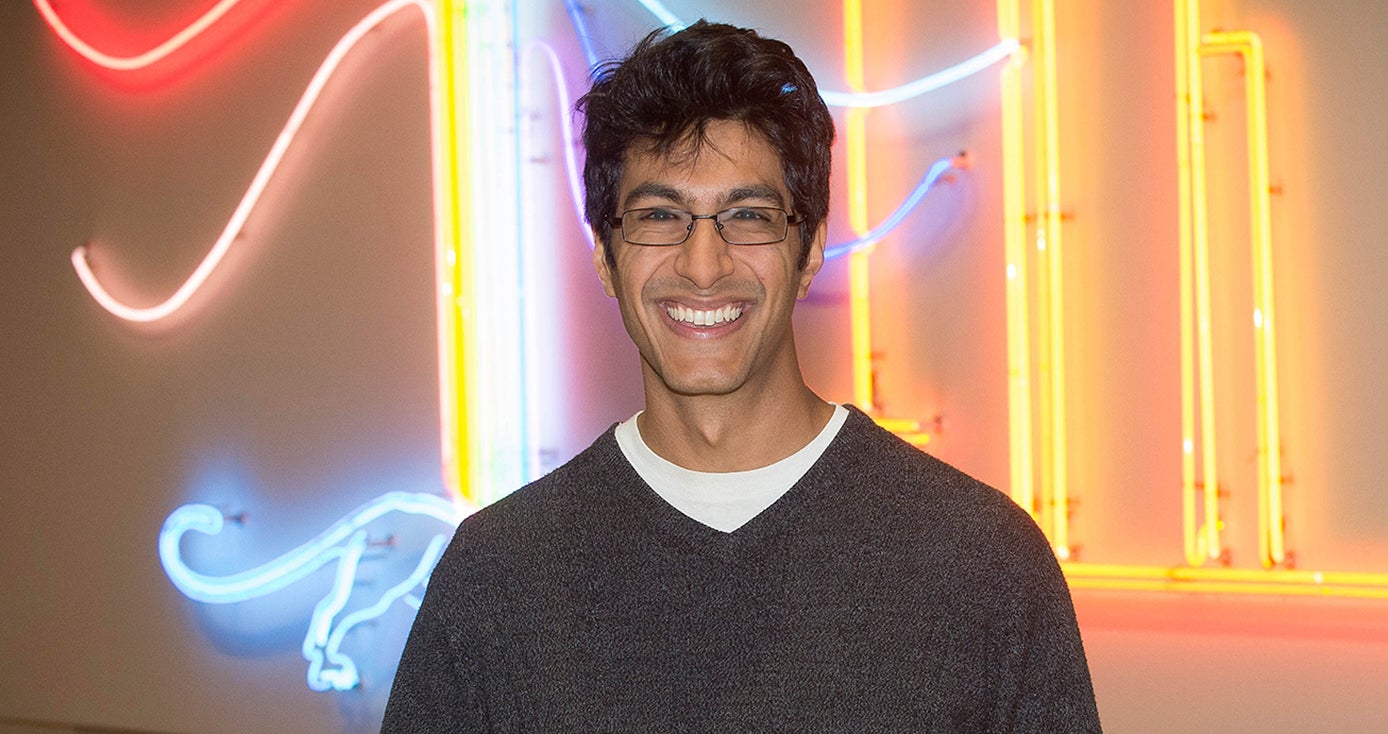
Subscribe to Pittwire Today
Get the most interesting and important stories from the University of Pittsburgh.Alumnus Helps World One Bar of Soap at a Time
Taking on the world’s biggest social challenges requires more than just a desire to do good.
“A lot of people laugh at you, especially if you’re a 20-, 21-year-old kid riding your bike in 110-degree Cambodian sun asking hoteliers for their dirty soap,” said Samir Lakhani, attesting to the entrepreneurial values of perseverance and a thick skin.
Today, no one is laughing at Lakhani, founder and executive director of Eco-Soap Bank, which sanitizes and recycles used hotel soaps for distribution in the developing world.
Vote Samir CNN Hero of the Year
Pitt alumnus Samir Lakhani is one of 10 CNN Hero of the Year finalists vying for a $100,000 grant to advance their work.
Lakhani founded Eco-Soap Bank, a humanitarian nonprofit that works to save, sanitize and supply recycled hotel soap while providing hygiene education to people in developing nations.
Cast up to 30 votes daily —10 by email login, 10 by Facebook login, 10 by Facebook Messenger — at CNNHeroes.com or CNN Heroes on Facebook.
Voting ends Dec. 12.
The winner will be revealed on “CNN Heroes: An All-Star Tribute,” airing live on Dec. 17 at 8 p.m.
Lakhani, a 2015 Pitt alumnus, was a junior majoring in environmental studies when his “lightning-bolt moment” came during a summer internship in Cambodia in 2014.
He saw that access to basic sanitation — including proper soap for hand-washing — was nonexistent in many rural areas, resulting in high rates of chronic diarrhea and, relatedly, child mortality.
He was motivated to act after seeing a mother in a rural village bathing her infant in a basin using powdered laundry detergent.
She had no proper soap, but a fresh bar awaited him each morning at the guest house where he was staying — and the same was true for countless guests in hotels that serve tourists visiting the famed Angkor Wat temple complex.
Before leaving Cambodia, he devised a method for sanitizing and recycling used hotel soap. With modest funding from friends and family, he then developed a sustainable plan to hire local women to collect and recycle the soap.
Now with branches in Cambodia, Laos, Tanzania, Rwanda and Nepal — and plans to add another in Ethiopia next year — Eco-Soap Bank has supplied more than 650,000 people with soap and hygiene education since 2014.
The collected soap is processed into new bars that are distributed to hospitals, schools and other organizations in conjunction with hand-washing instructions. Some of the branches are independently operated by local women who sell the recycled soap, encouraging entrepreneurship and bringing revenue back into the communities themselves.
Advice at Global Entrepreneurship Week
Lakhani joined three other Pittsburgh-based social entrepreneurs in a conversation with Innovation Institute entrepreneur-in-residence Rhonda Schuldt as part of Pitt’s Global Entrepreneurship Week celebration.
Each year in November, this week of activities focuses on networking opportunities and encouraging entrepreneurial activity. The international initiative is now in its 10th year under the leadership of the Washington, D.C.-based Global Entrepreneurship Network, which operates a platform of projects and programs in 170 countries.
Among Lakhani's words of advice to the audience, which ranged from students to established business people:
- “Identify a challenge and act on it,” but be patient. “To change behavior, especially from a health perspective, takes a very long time,” particularly when working in the developing world. “Problems scream out at you but you have to realize that people have been living in this manner for years and they may not respond quickly.”
- “Reach out to people you know with your ideas” for initial support. “I think people are desperately trying to get involved in something they can be proud of, especially when they have a connection with the person who’s leading the project.”
- “Once you have a proven track record, once you have established a product that’s locally relevant … that track record will speak for itself and you will find naturally growing enterprise.”
In a little more than three years, Lakhani has gone from biking between Cambodian hotels asking for scraps of soap to fielding calls from soap manufacturers with major donations to offer.
“They say, ‘Samir, we changed our labeling; we changed our packaging. We have 3 million bars of Dove soap that we were going to throw away. Can you ship it to Ethiopia? Can you ship it to Uganda?’”
Lakhani believes still more can be done.
“There’s no reason why we should not exist in every metropolitan city in the world that has a local hygiene need. … I really do believe that we can collect as much soap as we can and do as much good in terms of hygiene as possible.”


